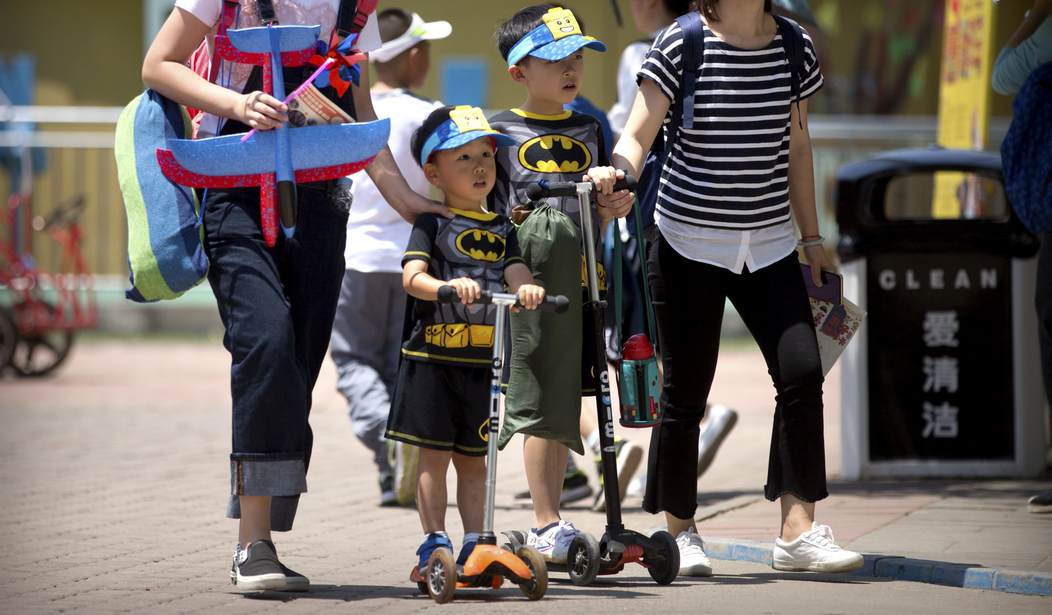It's election day and that's what we're all focused on. We will be diving into all of that later today (and probably late into the night) but for now some news from the other side of the world.
China is no longer the most populous country in the world. It lost that title to India in 2022 and for the past two years its population has dropped. For years, China had enforced a one-child policy on couples but it ended that in 2016 and is now in the midst of a nationwide effort to encourage more marriages and bigger families.
China’s central government last month issued a package of policies that provides various incentives to ease the costs of raising children amid a looming demographic crisis.
To those who witnessed and experienced the mainland’s draconian one-child policy for over three decades, Beijing’s latest initiative to help cultivate a “birth-friendly society” marks quite an about-turn from the rigid enforcement of hefty fines and forced abortions during that Kafkaesque period...
In retrospect, China’s ruthless family planning regime had gone too far. Beijing officially ended its one-child policy in January 2016 in favour of a two-child policy, before introducing a three-child policy in May 2021. Still, those changes were too little, too late.
What China is seeing now is a collapse in the number of marriages. This year is on track to be the lowest number since records were kept.
The number of new marriages recorded in China is on course to fall this year to the lowest level since records began, official data shows, as the country’s demographic crisis deepens despite a sweeping government campaign to boost matrimony and encourage births...
Some 4.74 million Chinese couples registered their marriages in the first three quarters of 2024, a decrease of 16.6% from the 5.69 million recorded in the same period last year, according to data released by the Ministry of Civil Affairs on Friday...
To reverse the decline, Chinese officials have rolled out a raft of measures, from financial incentives to propaganda campaigns, to nudge young people to tie the knot and have children.
Officials have organized blind dating events, mass weddings, and attempted to curtail the tradition of large “bride price” payments from the groom to his future wife’s family that put marriage out of reach for many poor men in rural areas.
It probably doesn't help that the appeals on behalf of marriage may not sound very appealing to women.
"Having three children is the best" says a vibrant neon pink sign at a wedding expo in the southern Chinese city of Changsha, where visitors can also pick up tips on tying the knot and men can strap on a pregnancy belly to experience childbirth pain...
Social media users called out slogans at the expo such as "Housework is the best", "Best at raising kids" and "Best at tutoring homework" for reinforcing gender stereotypes.
"The slogans are all aimed at women. Shouldn't sharing housework be the right thing to do?" said a user with the handle Jianguo on China's Weibo platform.
A user with the handle Xiaohong on social e-commerce site Xiaohongshu, known as China's answer to Instagram, wrote the festival had probably "persuaded a lot of hesitant people to give up marriage".
The future is not looking good. China's fertility rate is now lower than Japan's and one of the lowest in the world. Thousands of kindergartens across the country are closing for lack of children to fill them.
It's very unlikely that China can change this trend through the kind of policies it has employed so far. And that means they are now at the beginning of a steep population decline which will reduce the size of the country by hundreds of millions over the next half century. That will increasingly make it tough for the aging population who have to be supported by a quickly shrinking number of new workers.
There are ways to manage this decline, including allowing more immigration, but China has not seemed interested in that. The wildcard in all of this is probably AI and robotics. Could countries like China sufficiently turn their industry over to machines to counteract the shrinking number of people? They will probably have to do something dramatic to avoid the decline that comes with a rapidly shrinking population.








Join the conversation as a VIP Member